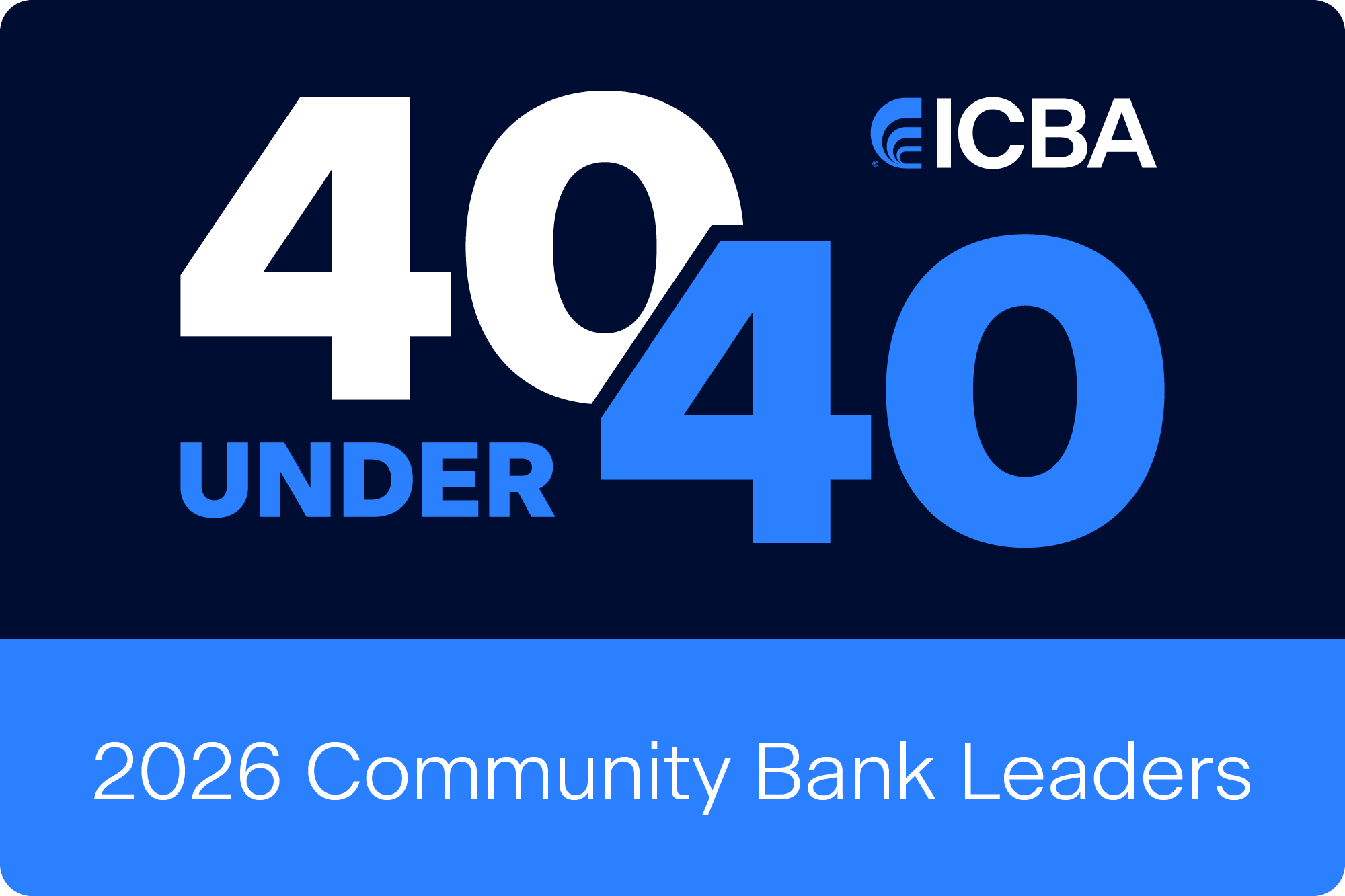ICBA is dedicated to ensuring the role of community banks is properly communicated to policymakers so community banks can remain viable and compete on a level playing field.
Mark Scanlan: Nobody serves rural America better than community banks
November 01, 2022 / By ICBA
ICBA is dedicated to ensuring the role of community banks is properly communicated to policymakers so community banks can remain viable and compete on a level playing field.
Quick Stat
72%
of bank offices in rural counties in the U.S. are operated by community banks
Source: ICBA
Since the Consumer Financial Protection Bureau (CFPB) turned its attention to the financial challenges facing rural communities earlier this year, ICBA has worked diligently to engage with and educate the bureau on the special role community banks play in keeping rural communities strong and viable.
Since the CFPB first publicized its interest in the topic in March 2022, ICBA has engaged with the CFPB, identifying the root causes and ways to alleviate some issues while challenging the bureau’s perception of others.
The bureau has encouraged ICBA’s advocacy. In September, CFPB director Rohit Chopra welcomed ICBA’s Agriculture-Rural committee, members of the executive committee and ICBA staff to a virtual meeting about the role independent community banks play in rural communities.
Community banks play a critical role in providing access to basic banking services that sustain job creation, rural housing, education and other important local needs.
Key rural banking issues to tackle
ICBA has followed up with letters to the CFPB to underscore key issues related to rural banking.
Partial exemption of community banks from 1071. ICBA proposes exempting community banks with total assets of less than $1.32 billion from section 1071 disclosures related to small business data collection. This exclusion would be consistent with Community Reinvestment Act (CRA) and Home Mortgage Disclosure Act (HMDA) statutes. ICBA argues CFPB’s proposal exempting banks with fewer than 25 business loans annually is simply too small and would increase regulatory burdens and possibly lead to further consolidation—leaving fewer banks to serve rural America.
Excusing these community banks would support a mutual point of agreement between the CFPB and ICBA: the value relationship banking creates for rural consumers. This stands in contrast to the large-bank algorithmic model that often treats consumers as data points rather than human beings.
Since credit unions and nonbank lenders do not comply with CRA requirements, they would be a more appropriate target for the CFPB’s section 1071 requirements.
Requiring the Farm Credit System (FCS) to comply with 1071. If the FCS were a bank, it would be the ninth largest U.S. banking institution, with approximately $450 billion in total assets and $357 billion in total loans at year-end 2021. An institution that large should not be exempt from the CFPB’s section 1071 regulation, as it would leave out a huge segment of rural loans, distorting the CFPB’s view of rural lending markets.
Rather than serving the smallest farm and ranch borrowers who may have trouble finding credit (with loans of $250,000 or less representing less than 10% of its loan volume), the FCS has cherry-picked more profitable farm loans from community banks’ portfolios.
Reducing bank consolidation. Reports indicate community banks are three times more likely to be located in a rural area than nonbank lenders. Community banks operate 57% of bank offices in micropolitan counties (under 10,000 population) and 72% of offices in rural counties. The vital role of community banks is underscored in that approximately 25% of all counties have only a community bank presence. Clearly, community banks play a critical role in providing access to basic banking services that sustain job creation, rural housing, education and other important local needs.
Other merger and acquisition recommendations
ICBA urged the CFPB to recognize the challenges rural communities face if they lose their community bank due to a merger with a larger bank, which is why ICBA encouraged the CFPB to minimize and significantly reduce regulatory burdens, which increase banking consolidation by driving up costs for small lenders.
Additionally, the CFPB could highlight the need to replace the antiquated requirements imposed by the Department of Justice and the Federal Reserve that prevent community banks from merging with other local community banks. As written, it makes it much easier for a community bank to merge with a larger, distant bank than a small local bank that would result in a stronger local institution that could serve rural communities for years to come.
Just as important, the CFPB should be wary of credit unions purchasing community banks. When a community bank is purchased by a large outside credit union, the result is often a significant lessening of credit to a community, in addition to a reduced tax base to sustain the community’s services.
In addition, ICBA urged the CFPB to develop a more useful term than “banking deserts,” as rural residents can often travel more than 10 miles to access regular services due to rural geography.
ICBA looks forward to continuing discussions with the CFPB to properly frame the issues that determine access to credit in rural America. Community banks play a crucial role in sustaining the viability of rural America and serving its credit needs, and ICBA is dedicated to ensuring the role of community banks is properly communicated to policymakers so community banks can remain viable and compete on a level playing field.
Subscribe now
Sign up for the Independent Banker newsletter to receive twice-monthly emails about new issues and must-read content you might have missed.
Sponsored Content
Featured Webinars
Join ICBA Community
Interested in discussing this and other topics? Network with and learn from your peers with the app designed for community bankers.
Subscribe Today
Sign up for Independent Banker eNews to receive twice-monthly emails that alert you when a new issue drops and highlight must-read content you might have missed.
News Watch Today

Join the Conversation with ICBA Community
ICBA Community is an online platform led by community bankers to foster connections, collaborations, and discussions on industry news, best practices, and regulations, while promoting networking, mentorship, and member feedback to guide future initiatives.













